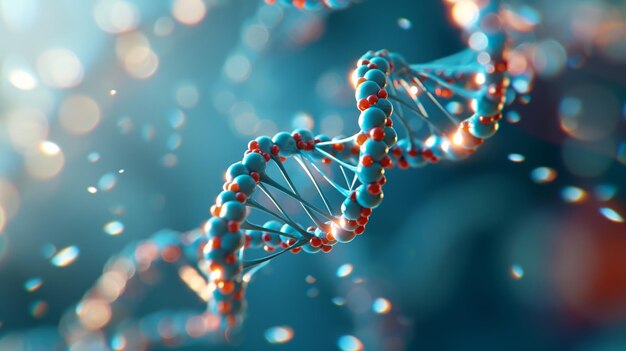Introduction: Why MTHFR and Detoxification Matter
Every day, our bodies are exposed to toxins—whether from environmental pollutants, processed foods, heavy metals, or even byproducts of our own metabolism. Our ability to detoxify these harmful substances is crucial for maintaining health and preventing disease. One of the key players in this detoxification process is methylation, a biochemical pathway that relies on the proper function of the MTHFR (methylenetetrahydrofolate reductase) gene.
What Is MTHFR and Why Is It Important?
The MTHFR gene provides instructions for producing the MTHFR enzyme, which is responsible for converting folate (vitamin B9) into its active form, methylfolate (5-MTHF). This activated folate is essential for the methylation cycle, a process that influences:\\n
✔ Detoxification – Helps break down toxins, heavy metals, and environmental chemicals
✔ DNA Repair & Gene Expression – Regulates how genes turn on and off
✔ Neurotransmitter Production – Supports mood stability and cognitive function
✔ Cardiovascular Health – Reduces homocysteine levels, lowering heart disease risk
✔ Immune System Regulation – Supports proper inflammatory responses and defense mechanisms
However, mutations (or polymorphisms) in the MTHFR gene can reduce enzyme efficiency, slowing down these processes and making detoxification more difficult. Individuals with MTHFR mutations may struggle to eliminate toxins efficiently, leading to toxin buildup, oxidative stress, and chronic health conditions over time.
MTHFR and detoxification: Why does this mutation matter for detoxification?
- People with an MTHFR mutation often experience impaired methylation, which means their ability to neutralize and remove toxins is compromised. This can result in:\\n
- Increased heavy metal accumulation (lead, mercury, aluminum)
- Difficulty breaking down environmental toxins (pesticides, plastics, chemicals)
- Chronic inflammation and oxidative stress
- Hormonal imbalances due to poor estrogen metabolism
- Neurological and mental health issues (brain fog, anxiety, depression)
Since detoxification is a constant, ongoing process, any inefficiency in the MTHFR pathway can lead to long-term toxin accumulation, increasing the risk of conditions such as chronic fatigue, autoimmune diseases, migraines, skin disorders, and cardiovascular issues.
What Is the MTHFR Gene and Its Role in the Body?
The MTHFR gene (methylenetetrahydrofolate reductase) is one of the most important genes involved in regulating the body’s detoxification and methylation processes. It provides the blueprint for producing the MTHFR enzyme, which is essential for metabolizing folate (vitamin B9) and converting it into its active form, 5-methyltetrahydrofolate (5-MTHF). This activated form of folate is required for critical biochemical processes that influence DNA repair, neurotransmitter production, cardiovascular health, and the body’s ability to eliminate toxins.
Mutations in the MTHFR gene can lead to reduced enzyme activity, impairing the methylation process and compromising the body’s detoxification capacity. Understanding how the MTHFR gene functions and why it matters for detoxification is key to developing strategies to support the body’s natural detox pathways.
Definition of MTHFR: What Does the Gene Do?
The MTHFR gene is located on chromosome 1 and encodes the methylenetetrahydrofolate reductase enzyme. This enzyme plays a critical role in the folate metabolism pathway, where it converts dietary folate (found in leafy greens, legumes, and fortified grains) into its biologically active form, 5-MTHF.
The primary role of 5-MTHF is to act as a methyl donor in the methylation cycle — a biochemical process that regulates:
✔ DNA methylation – Essential for turning genes on and off and repairing damaged DNA.
✔ Neurotransmitter production – Methylation helps produce serotonin, dopamine, and norepinephrine, which are crucial for mood and cognitive function.
✔ Detoxification – Methylation activates detox enzymes in the liver, which break down toxins and heavy metals.
✔ Cardiovascular health – Methylation converts homocysteine (a potentially harmful amino acid) into methionine, reducing the risk of heart disease.
✔ Hormonal balance – Supports estrogen metabolism and elimination of excess hormones.
Without adequate MTHFR activity, the body’s ability to produce methyl donors becomes compromised, leading to an impaired methylation cycle and reduced detoxification capacity.
The Role of MTHFR in Methylation and Detoxification
Methylation is one of the body’s most essential biochemical processes. It involves the transfer of a methyl group (one carbon atom and three hydrogen atoms) from 5-MTHF to various molecules, including DNA, proteins, and neurotransmitters. This process regulates key functions such as gene expression, immune response, and cellular repair.
How MTHFR Mutation Disrupts Detoxification and Contributes to Toxin Overload
The MTHFR (methylenetetrahydrofolate reductase) gene provides instructions for producing the MTHFR enzyme, which plays a crucial role in the methylation cycle. Methylation is essential for detoxification because it activates enzymes involved in processing toxins and supports the production of glutathione—the body’s most powerful detoxifier.
When the MTHFR gene is mutated, the enzyme’s activity is reduced, which leads to:
- Impaired methylation – Reduced production of SAMe (S-adenosylmethionine), a key methyl donor involved in detoxification.
- Low glutathione levels – Without adequate methylation, the body produces less glutathione, weakening the ability to neutralize toxins and oxidative stress.
- Poor phase II liver detoxification – Phase II enzymes that bind toxins and prepare them for excretion are less effective, leading to toxin accumulation.
- Increased oxidative stress – The buildup of toxins generates free radicals that cause inflammation and cellular damage.
- Heavy metal retention – Poor detoxification leads to the accumulation of heavy metals like mercury, aluminium and lead, which can impair cognitive and immune function.
- Accumulation of xenoestrogens (chemicals that mimic estrogen) and other endocrine disruptors.
- Increased levels of homocysteine, which is linked to heart disease and stroke.
- Difficulty metabolizing medications and breaking down environmental toxins.
When the detox system becomes overwhelmed, toxins start to accumulate in fat tissue, the liver, and even the brain, contributing to chronic inflammation, hormonal imbalances, and immune dysfunction.
In the context of detoxification, methylation activates phase II liver detoxification enzymes that convert fat-soluble toxins into water-soluble compounds so they can be excreted through the urine and feces. These enzymes include:
- Glutathione S-transferase (GST) – Detoxifies heavy metals and environmental chemicals.
- N-acetyltransferase (NAT) – Processes drugs and environmental toxins.
- UDP-glucuronosyltransferase (UGT) – Helps eliminate hormones and toxins.
An efficient methylation cycle ensures that these detox pathways function properly. However, if MTHFR mutations reduce enzyme activity, methylation slows down, leading to inefficient toxin removal and increased oxidative stress.
Why Is MTHFR Important for Processing Toxins?
The MTHFR gene is essential for detoxification because it directly influences the production of glutathione, the body’s most powerful antioxidant and detoxifier. Glutathione binds to toxins and facilitates their removal through the liver, kidneys, and gastrointestinal tract.
When MTHFR enzyme activity is reduced due to genetic mutations, glutathione production drops, which can result in:
- Poor clearance of environmental toxins – Pesticides, plastics, and air pollutants accumulate more easily.
- Increased heavy metal load – Mercury, lead, and cadmium become harder to eliminate.
- Greater oxidative stress – Unneutralized free radicals cause cellular damage and inflammation.
- Hormonal imbalances – Poor estrogen metabolism can lead to symptoms like PMS, endometriosis, and estrogen dominance.
Additionally, impaired MTHFR function can weaken the body’s ability to detoxify xenobiotics (foreign substances), including medications, alcohol, and chemicals found in plastics and personal care products. This can make individuals with MTHFR mutations more sensitive to drugs and environmental chemicals, leading to symptoms like headaches, fatigue, brain fog, and skin issues.
Summary
MTHFR and detoxification
✔ MTHFR is crucial for converting folate into methylfolate, which drives the methylation cycle.
✔ Methylation regulates DNA repair, neurotransmitter production, and detox enzyme activation.
✔ MTHFR mutations reduce glutathione levels, impairing detox pathways and increasing toxin accumulation.
✔ Supporting methylation through nutrition and supplementation is key to enhancing detoxification and improving overall health.
Let’s dive depp into this.
How Does MTHFR Mutation Affect Detoxification?
Detoxification is one of the body’s most important biological functions, involving the removal of harmful toxins, heavy metals, and metabolic waste products. The human body is constantly exposed to toxins from the environment, food, water, and even internally generated waste products. An efficient detoxification system is essential for maintaining overall health, protecting cells from damage, and preventing chronic diseases.
The body’s detoxification capacity is largely influenced by the efficiency of the methylation cycle, which is driven by the MTHFR (methylenetetrahydrofolate reductase) enzyme. When the MTHFR gene is functioning properly, it supports the production of essential compounds like methylfolate, which activates the methylation process and boosts the body’s ability to eliminate toxins. However, when a person has an MTHFR mutation, the enzyme’s efficiency is reduced, leading to impaired detoxification pathways, increased oxidative stress, and toxin accumulation.
In this section, we will explore how the methylation cycle impacts detoxification, how reduced glutathione production worsens the problem, and the most common detoxification issues associated with MTHFR mutations.
Methylation and Its Impact on Detox Pathways
Methylation is a biochemical process that involves the transfer of a methyl group (a carbon atom bonded to three hydrogen atoms) to other molecules. This process is essential for many bodily functions, including:
- DNA repair and gene regulation
- Hormone metabolism
- Neurotransmitter production
- Immune function
- Detoxification
The methylation cycle is largely dependent on the conversion of folate (vitamin B9) into its biologically active form, 5-methyltetrahydrofolate (5-MTHF). The MTHFR enzyme is responsible for this conversion. When the MTHFR gene is functioning properly, the body is able to produce adequate levels of 5-MTHF, which fuels the methylation cycle and supports detoxification.
How Methylation Supports Detoxification
Detoxification occurs primarily in the liver through two main phases:
- Phase I Detoxification – Toxins are broken down into intermediate metabolites by enzymes in the cytochrome P450 family.
- Phase II Detoxification – The intermediate metabolites are further processed and bound to molecules like glutathione or sulfate to make them water-soluble and easy to excrete through the urine or bile.
Methylation is particularly important for Phase II detoxification because it activates key enzymes involved in conjugation (binding toxins to other molecules for removal). For example:\\n
✔ Glutathione S-transferase (GST) – Binds heavy metals and environmental toxins to glutathione for excretion.
✔ Catechol-O-methyltransferase (COMT) – Methylates catecholamines (stress hormones) and estrogens for removal.
✔ N-acetyltransferase (NAT) – Processes chemicals, drugs, and environmental toxins.
When methylation is impaired due to an MTHFR mutation, these Phase II enzymes function less efficiently, resulting in slower toxin clearance and higher levels of circulating toxins. Over time, this can contribute to chronic inflammation, oxidative stress, and tissue damage.
Reduced Glutathione Production and Poor Toxin Elimination
Glutathione is one of the body’s most important antioxidants and detoxifying agents. It is involved in neutralizing free radicals, reducing oxidative stress, and binding toxins to facilitate their removal. Glutathione also plays a critical role in detoxifying heavy metals and environmental pollutants.
How Glutathione Production Relies on Methylation
The body produces glutathione through a biochemical pathway called the transsulfuration pathway, which is directly influenced by methylation. For glutathione synthesis to occur, the body needs:
- Methionine – Converted into S-adenosylmethionine (SAMe), which donates a methyl group to fuel the methylation cycle.
- Cysteine – A key amino acid involved in glutathione production.
- Vitamin B6 – Required to convert homocysteine into cysteine (used to make glutathione).
When the MTHFR gene is mutated, the production of methylfolate is reduced, which lowers SAMe levels. As a result, the transsulfuration pathway slows down, leading to reduced glutathione synthesis. Without sufficient glutathione, the body struggles to eliminate toxins efficiently.
Consequences of Low Glutathione
- Poor clearance of heavy metals (e.g., mercury, lead, cadmium)
- Increased sensitivity to chemical exposure (pesticides, air pollution, plastics)
- Higher risk of chronic inflammation and oxidative damage
- Increased vulnerability to neurological issues due to poor neurotransmitter metabolism
- Reduced capacity to eliminate excess hormones, leading to estrogen dominance and hormonal imbalances
Studies have shown that individuals with MTHFR mutations tend to have lower baseline levels of glutathione, leaving them more vulnerable to environmental toxins and chronic health issues.
Common Detoxification Problems Caused by MTHFR Mutations
1. Difficulty Breaking Down Environmental Toxins
People with MTHFR mutations often struggle to metabolize and eliminate environmental toxins like:
- Pesticides – Organophosphates used in agriculture can accumulate in fat tissue.
- Plastics – BPA and phthalates act as endocrine disruptors, mimicking estrogen.
- Airborne pollutants – VOCs (volatile organic compounds) and car exhaust.
- Heavy metals – Mercury, lead, arsenic, and aluminum are particularly difficult to eliminate.
Since the detoxification enzymes that process these toxins depend on efficient methylation, individuals with MTHFR mutations tend to accumulate higher levels of these harmful substances over time.
2. Increased Oxidative Stress
Oxidative stress occurs when there is an imbalance between free radicals and antioxidants in the body. Free radicals are highly reactive molecules that can damage cells, proteins, and DNA.
- Reduced glutathione levels (due to impaired methylation) limit the body’s ability to neutralize free radicals.
- Increased oxidative damage contributes to inflammation, aging, and chronic diseases like cancer and heart disease.
- Poor detoxification of chemicals and heavy metals generates more free radicals, further increasing oxidative stress.
3. Heavy Metal Accumulation
Heavy metals such as mercury, lead, and arsenic are particularly difficult for the body to eliminate without adequate glutathione levels. Since methylation regulates glutathione synthesis and the activity of detox enzymes like glutathione S-transferase, impaired methylation can lead to:
- Neurological damage – Mercury and lead can interfere with neurotransmitter function.
- Hormonal imbalance – Heavy metals can act as xenoestrogens, disrupting hormone balance.
- Immune suppression – High levels of toxic metals weaken immune response.
- Chronic fatigue and brain fog – Linked to mitochondrial dysfunction caused by heavy metal buildup.
Summary of MTHFR-Related Detox Problems
✔ Impaired methylation reduces the activity of detox enzymes involved in Phase II detoxification.
✔ Lower glutathione production leads to poor toxin clearance and increased oxidative stress.
✔ Heavy metals, pesticides, and plastics accumulate more easily, leading to chronic health issues.
✔ Supporting methylation and glutathione production is essential for overcoming these detoxification challenges.
Signs and Symptoms of Poor Detoxification in People with MTHFR Mutation
Detoxification is a critical biological function that allows the body to remove harmful substances, including environmental toxins, heavy metals, metabolic waste, and excess hormones. When the body’s detox pathways are functioning properly, these substances are efficiently processed and eliminated through the liver, kidneys, skin, and intestines. However, when the MTHFR gene is mutated, the detoxification process becomes compromised, leading to a wide range of physical and mental health symptoms.
The MTHFR gene is essential for the production of the MTHFR enzyme, which facilitates the conversion of folate into methylfolate (5-MTHF). This active form of folate is required for methylation, a biochemical process that drives the production of glutathione and activates detoxification enzymes. When methylation is impaired due to MTHFR mutations, detoxification slows down, and toxins begin to accumulate in the body, triggering chronic inflammation, oxidative stress, and a variety of health issues.
In this section, we will explore the most common symptoms of poor detoxification in individuals with MTHFR mutations, how to recognize the signs of impaired methylation, and who may be at greater risk for developing these issues.
Common Symptoms of Impaired Detox Pathways
People with MTHFR mutations often exhibit symptoms that stem from the body’s inability to properly eliminate toxins and manage oxidative stress. These symptoms can be subtle at first but tend to worsen over time as toxins accumulate and inflammation increases.
1. Chronic Fatigue
One of the most common symptoms of poor detoxification is chronic fatigue. When the body is overloaded with toxins, the liver and other detox organs work harder to eliminate them, putting a strain on energy production.
- Impaired methylation reduces the production of glutathione, which is essential for cellular energy and mitochondrial function.
- Heavy metals and environmental toxins can accumulate in tissues, interfering with cellular metabolism and causing mitochondrial dysfunction.
- Over time, this leads to feelings of exhaustion, muscle weakness, and a lack of motivation.
People with MTHFR mutations may wake up feeling tired even after a full night’s sleep and struggle to maintain consistent energy levels throughout the day.
2. Brain Fog and Cognitive Dysfunction
Brain fog is another hallmark symptom of impaired detoxification. When the body cannot properly eliminate toxins, they accumulate in the brain and nervous system, affecting cognitive function.
- Heavy metals like mercury and lead are known neurotoxins that can impair memory, concentration, and focus.
- Impaired methylation reduces the production of neurotransmitters like dopamine and serotonin, contributing to mood imbalances and mental fatigue.
- Increased oxidative stress damages brain cells and reduces mental clarity.
Individuals with MTHFR mutations often experience difficulty focusing, mental sluggishness, and forgetfulness. Brain fog can become more pronounced after exposure to environmental toxins, poor diet, or stress.
3. Skin Issues (Eczema, Acne, Rashes)
The skin is one of the body’s major detoxification organs. When the liver and kidneys are unable to efficiently process toxins due to poor methylation, the body may try to eliminate toxins through the skin.
- This can lead to inflammation, clogged pores, and bacterial overgrowth.
- Acne and eczema are common signs that the body’s detoxification pathways are overloaded.
- Heavy metals and chemical toxins can disrupt the balance of skin oils and increase skin sensitivity.
- Increased oxidative stress can break down collagen and contribute to premature aging and skin dryness.
Chronic skin issues that don’t respond to typical treatments are often a sign that the underlying cause may be impaired detoxification.
4. Hormonal Imbalances
Methylation plays a crucial role in metabolizing and eliminating excess hormones, especially estrogen.
- Poor methylation can lead to estrogen dominance, where excess estrogen is not properly broken down and excreted.
- This can cause symptoms such as:
- Irregular menstrual cycles
- Heavy periods
- Breast tenderness
- PMS and mood swings
- Impaired methylation also affects the production of neurotransmitters like dopamine, serotonin, and GABA, which regulate mood and emotional balance.
- In men, poor detoxification of hormones can contribute to low testosterone levels and reduced libido.
Since the liver processes hormones during Phase II detoxification, any impairment in methylation can lead to an accumulation of active hormones in the bloodstream, increasing the risk of hormonal imbalances and mood disturbances.
5. Chemical Sensitivity
People with MTHFR mutations are often highly sensitive to chemicals and environmental toxins because of reduced detoxification capacity.
- Exposure to perfumes, cleaning products, plastics, pesticides, and medications can trigger symptoms such as:
- Headaches
- Nausea
- Dizziness
- Respiratory issues
- Impaired glutathione production means the body cannot efficiently neutralize and eliminate these chemicals, making them more toxic to individuals with MTHFR mutations.
- Chemical sensitivity is often accompanied by increased inflammation and oxidative stress, which can further exacerbate other detox-related symptoms.
Who Is at Risk? Understanding Genetic Susceptibility
Not everyone with an MTHFR mutation will experience impaired detoxification, but certain genetic and environmental factors can increase the likelihood of developing symptoms:
1. Genetic Factors
- Individuals with two copies of the C677T mutation have the highest risk of impaired methylation and detoxification.
- The A1298C mutation also reduces MTHFR activity but tends to have milder effects on detoxification.
- People with both C677T and A1298C mutations are at the highest risk for severe detoxification issues.
2. Environmental Toxin Exposure
- High exposure to heavy metals, pesticides, plastics, and pollution can overwhelm detox pathways, especially in people with MTHFR mutations.
- Living in urban or industrial areas, working in manufacturing or agriculture, or consuming non-organic produce increases toxin load.
3. Poor Diet and Nutrient Deficiency
- Methylation requires adequate levels of:
- Folate (5-MTHF)
- Vitamin B12 (methylcobalamin)
- Vitamin B6 (pyridoxal-5-phosphate)
- Magnesium and zinc
- A diet lacking these nutrients can worsen methylation and detoxification problems.
4. Chronic Stress and Inflammation
- Stress increases the body’s production of catecholamines (adrenaline and noradrenaline), which require methylation for breakdown.
- Increased stress reduces glutathione levels and weakens detox capacity.
5. Medical Conditions
- Autoimmune diseases
- Chronic fatigue syndrome
- Fibromyalgia
- Multiple chemical sensitivity
- Hormonal disorders
Individuals with these conditions are more likely to have impaired detoxification due to underlying methylation issues and chronic inflammation.
Summary of Detoxification Symptoms
✔ Chronic fatigue and low energy levels
✔ Brain fog and difficulty concentrating
✔ Persistent skin problems
✔ Hormonal imbalances (PMS, irregular cycles, low libido)
✔ Sensitivity to environmental chemicals and medications
Understanding these symptoms is the first step toward developing a targeted strategy to support detoxification and improve overall health in individuals with MTHFR mutations. In the next section, we’ll explore effective strategies to enhance detox capacity and support methylation through nutrition, supplementation, and lifestyle changes.
How to Support Detoxification with MTHFR Mutation
1. Optimize Nutrient Intake for Methylation Support
Supporting methylation is one of the most effective ways to improve detoxification for individuals with an MTHFR mutation. Since methylation relies on the availability of specific nutrients, optimizing your diet and supplementation can help bypass the genetic limitations caused by reduced MTHFR enzyme activity.
Essential Vitamins for Methylation
Individuals with MTHFR mutations often have difficulty converting dietary folic acid into its active form, methylfolate (5-MTHF). Therefore, it’s essential to provide the body with nutrients that support direct methylation:
- Methylfolate (5-MTHF) – Instead of synthetic folic acid, supplementing with methylfolate provides the body with a bioavailable form of folate that can directly enter the methylation cycle. Methylfolate supports DNA repair, neurotransmitter production, and detoxification enzyme activity.
- Methylcobalamin (B12) – Methylcobalamin is the active, methylated form of vitamin B12 that helps convert homocysteine into methionine, which supports the production of S-adenosylmethionine (SAMe). SAMe is a key methyl donor that drives detoxification and glutathione production.
- Riboflavin (B2) – Riboflavin is a cofactor for the MTHFR enzyme and helps increase its efficiency. It also plays a key role in recycling glutathione and supporting energy metabolism.
Best Dietary Sources of Methylation-Supporting Nutrients
To naturally support methylation and detoxification, focus on incorporating nutrient-rich, whole foods into your diet:
✔ Leafy greens – Spinach, kale, arugula, and Swiss chard are rich in natural folate.
✔ Animal-based products – Eggs, liver, and red meat provide high levels of methylcobalamin and essential amino acids.
✔ Legumes and beans – Lentils, chickpeas, and black beans are excellent plant-based sources of folate and B vitamins.
✔ Nuts and seeds – Sunflower seeds, almonds, and walnuts provide riboflavin and magnesium.
✔ Seafood – Salmon, sardines, and shellfish are high in B12 and omega-3 fatty acids, which support inflammation reduction and detoxification.
By ensuring a steady intake of these key nutrients, individuals with MTHFR mutations can enhance methylation efficiency and improve the body’s ability to eliminate toxins effectively.
2. Increase Glutathione Levels for Better Detoxification
Glutathione is often referred to as the body’s “master antioxidant” because it plays a crucial role in detoxification, immune function, and protecting cells from oxidative stress. It is a tripeptide composed of three amino acids: glutamine, cysteine, and glycine. Glutathione works by binding to toxins, heavy metals, and free radicals, making them water-soluble so they can be excreted through urine or bile.
Individuals with an MTHFR mutation are at a higher risk of glutathione deficiency because impaired methylation reduces the availability of the raw materials and cofactors needed for glutathione synthesis. Reduced glutathione levels can lead to poor detoxification, increased toxin accumulation, and greater oxidative damage. Therefore, boosting glutathione levels is essential for improving detox capacity and reducing inflammation.
Ways to Naturally Boost Glutathione Production
Supporting the body’s natural glutathione production is possible through dietary and supplemental strategies:
1. Sulfur-Rich Foods
Sulfur is a key component of glutathione. Consuming sulfur-rich foods supports the transsulfuration pathway, which is involved in glutathione synthesis. The best sulfur-rich foods include:
✔ Garlic – Contains sulfur-containing compounds like allicin that support detoxification.
✔ Onions – Rich in sulfur and flavonoids that enhance liver detox enzymes.
✔ Cruciferous vegetables – Broccoli, cauliflower, Brussels sprouts, and kale contain glucosinolates, which help increase glutathione production and support liver detox pathways.
2. NAC (N-Acetyl Cysteine)
NAC is a direct precursor to glutathione and one of the most effective supplements for increasing intracellular glutathione levels. NAC works by supplying cysteine, which is essential for glutathione synthesis. Studies show that NAC supplementation helps improve liver function, reduce inflammation, and enhance detoxification of heavy metals and environmental toxins.
3. Whey Protein
Whey protein is a rich source of cysteine and glutamine, which are critical building blocks for glutathione. High-quality, grass-fed whey protein contains bioactive compounds that stimulate glutathione production and support immune function.
- Choose non-denatured whey protein to preserve glutathione-boosting properties.
- Add whey protein to smoothies or shakes for a nutrient-dense detoxification boost.
By increasing glutathione levels through diet and supplementation, individuals with MTHFR mutations can enhance their body’s ability to neutralize toxins, reduce oxidative stress, and improve overall health.
3. Support Liver Detox Pathways
The liver is the body’s primary detoxification organ. It processes toxins, drugs, hormones, and metabolic waste products, converting them into water-soluble compounds that can be excreted through urine or bile. The liver’s detoxification process occurs in two main phases—Phase I and Phase II—which must work in harmony for effective toxin removal. When the MTHFR gene is mutated, these detox pathways can become sluggish, leading to poor toxin elimination and increased oxidative stress. Supporting liver function is essential for improving overall detox capacity and preventing toxin buildup.
Phase I and Phase II Liver Detox Explained Simply
Phase I Detoxification – Activation
- In Phase I, toxins are chemically modified by a group of liver enzymes known as cytochrome P450 enzymes.
- These enzymes break down toxins, including pesticides, alcohol, drugs, and heavy metals, into intermediate metabolites.
- However, these intermediate metabolites are often highly reactive and more toxic than the original substances.
If Phase I is working faster than Phase II, toxic intermediates can accumulate, leading to oxidative damage and inflammation.
Phase II Detoxification – Conjugation and Elimination
- In Phase II, the liver converts these reactive intermediates into water-soluble compounds by attaching molecules like glutathione, sulfate, and methyl groups.
- Once conjugated, these compounds can be safely excreted through urine, bile, and sweat.
- Phase II detoxification relies heavily on proper methylation and glutathione production—both of which can be impaired by MTHFR mutations.
If Phase II is slow due to poor methylation, the body struggles to clear toxins, leading to chronic inflammation and toxin accumulation.
Best Foods and Supplements to Support Liver Function
1. Milk Thistle
Milk thistle (Silybum marianum) is one of the most powerful natural liver protectors. Its active compound, silymarin, has been shown to:
- Promote liver cell regeneration
- Increase glutathione levels in the liver
- Protect liver cells from damage caused by free radicals and toxins
- Support bile production, which helps in the excretion of fat-soluble toxins
Milk thistle also helps prevent liver damage from alcohol, medications (like acetaminophen), and heavy metals. A typical dosage is 200–400 mg of silymarin per day.
2. Turmeric (Curcumin)
Turmeric contains curcumin, a potent anti-inflammatory and antioxidant compound that supports liver detoxification by:
- Enhancing Phase II enzyme activity (glutathione S-transferase)
- Reducing liver inflammation and oxidative stress
- Improving bile flow, which enhances fat digestion and toxin elimination
Curcumin has poor bioavailability on its own, so it’s best absorbed when combined with black pepper extract (piperine). A common dosage is 500–1,000 mg of curcumin with piperine, taken with food for better absorption.
3. Green Tea
Green tea is rich in catechins—a group of powerful antioxidants that support liver function and detoxification. Catechins have been shown to:
- Stimulate Phase I and Phase II detox enzymes
- Increase glutathione production in liver cells
- Improve fat metabolism, which reduces fatty liver risk
- Protect the liver from oxidative damage caused by environmental toxins
Drinking 2–3 cups of green tea daily or taking a green tea extract supplement (containing at least 250 mg of catechins) can significantly improve liver function.
Summary
Supporting liver detoxification is essential for managing MTHFR-related detox issues. Strengthening Phase I and Phase II detox pathways with milk thistle, turmeric, and green tea can enhance the liver’s ability to eliminate toxins, reduce oxidative stress, and improve overall health.
5. Improve Gut Health for Better Detoxification
Gut health plays a crucial role in detoxification because the digestive system is one of the body’s primary pathways for eliminating toxins. The gut not only processes food and nutrients but also helps remove waste products, toxins, and excess hormones. A healthy gut supports efficient detoxification, while an imbalanced gut can lead to toxin buildup, inflammation, and impaired liver function. For individuals with an MTHFR mutation, optimizing gut health is even more important because poor methylation can compromise the gut’s ability to eliminate toxins effectively.
Why Gut Health Is Critical for Eliminating Toxins
The digestive tract serves as both a filter and a barrier. It works closely with the liver and immune system to remove harmful substances before they can enter the bloodstream. The gut’s role in detoxification includes:
- Binding and eliminating toxins – The gut eliminates toxins through bile and stool. When digestion is sluggish, toxins can be reabsorbed into the bloodstream instead of being excreted.
- Regulating inflammation – A balanced gut microbiome helps reduce inflammation, which supports liver health and detoxification enzyme activity.
- Preventing leaky gut syndrome – When the gut lining is damaged, toxins, undigested food particles, and bacteria can pass into the bloodstream, increasing the body’s toxic load.
- Managing hormone balance – The gut microbiome plays a key role in metabolizing and eliminating excess hormones, especially estrogen.
When the gut is inflamed or imbalanced, it increases the liver’s workload and makes it harder for the body to eliminate toxins. This is why gut health is considered one of the foundational pillars of effective detoxification.
Probiotics and Fiber-Rich Foods for Microbiome Support
The gut microbiome—consisting of trillions of beneficial bacteria—plays a central role in detoxification. A diverse and balanced microbiome enhances the body’s ability to process toxins and supports immune function.
1. Probiotics
Probiotics help restore balance to the gut microbiome by introducing beneficial bacteria that improve digestion and support detoxification.
- Lactobacillus and Bifidobacterium strains are particularly effective in improving gut barrier function and reducing inflammation.
- Probiotics help break down complex molecules and enhance the excretion of harmful substances through stool.
- Fermented foods such as:
- Kimchi
- Sauerkraut
- Kefir
- Yogurt
Taking a daily probiotic supplement with at least 10–20 billion CFU (colony-forming units) of mixed strains can support gut health and detoxification.
2. Fiber-Rich Foods
Fiber plays a key role in detoxification by binding to toxins and waste products in the intestines and promoting their elimination.
- Soluble fiber (e.g., from oats, legumes, and fruits) binds to bile acids and toxins, helping them exit the body.
- Insoluble fiber (e.g., from whole grains, nuts, and seeds) adds bulk to stool and promotes regular bowel movements, which prevents toxin reabsorption.
Best fiber-rich foods for detox:
✔ Chia seeds – High in both soluble and insoluble fiber
✔ Flaxseeds – Also rich in omega-3s, which reduce inflammation
✔ Leafy greens – Spinach, kale, and arugula support liver and gut health
✔ Berries – Rich in antioxidants and fiber
Aim for at least 25–30 grams of fiber daily to improve digestion and toxin elimination.
The Gut-Liver Connection and Detoxification
The gut and liver are closely connected through the gut-liver axis. The liver produces bile, which is released into the small intestine to help digest fats and remove toxins. The gut, in turn, reabsorbs bile and sends it back to the liver to be recycled.
However, when gut health is poor:
- Harmful bacteria can produce endotoxins (lipopolysaccharides), which enter the bloodstream and increase liver inflammation.
- A sluggish gut slows down bile flow, leading to poor fat digestion and toxin elimination.
- Poor gut health increases the workload on the liver, reducing its ability to detoxify effectively.
Supporting gut health with probiotics and fiber enhances bile production and flow, improves toxin binding and elimination, and strengthens the gut barrier to prevent reabsorption of toxins.
Summary
A healthy gut is essential for effective detoxification, especially for individuals with an MTHFR mutation. Supporting the gut with probiotics and fiber-rich foods improves digestion, enhances toxin elimination, and reduces the burden on the liver. Strengthening the gut-liver connection creates a more efficient detox system and supports overall health.





















